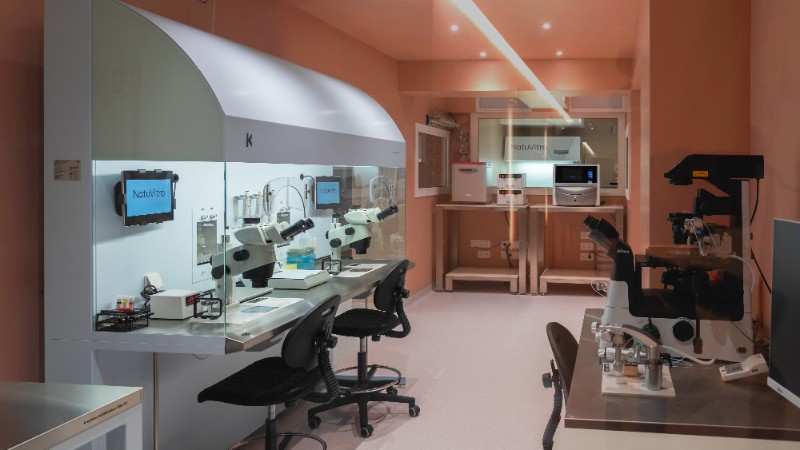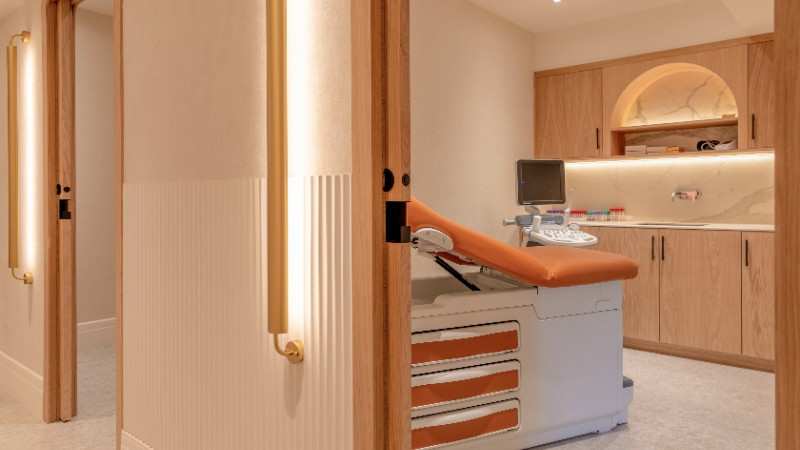
Introduction
As science continues to advance, so does our ability to unravel the intricacies of our genetic code. Preimplantation Genetic Testing (PGT) stands at the forefront of this scientific revolution, offering a powerful tool for prospective parents to ensure the health and well-being of their future offspring. In this comprehensive guide, we will delve into the definition of PGT, explore its utility, and examine the various types such as PGTA, PGT-M, and PGTSR, shedding light on who should consider each type.
Understanding PGT
Preimplantation Genetic Testing, abbreviated as PGT, refers to a series of advanced techniques used to examine embryos for genetic abnormalities before they are implanted in the uterus. This groundbreaking technology has evolved over the years, allowing for a deeper understanding of the genetic makeup of embryos during the in vitro fertilization (IVF) process. The primary goal of PGT is to identify and select embryos free from specific genetic disorders, thereby increasing the chances of a healthy pregnancy.
The Utility of PGT
1. Minimizing Genetic Risks:
One of the primary utilities of PGT is its ability to minimize the risk of passing on genetic disorders to the next generation. By screening embryos for specific genetic abnormalities, parents can make informed decisions about which embryos to implant, reducing the likelihood of a child being born with a genetic condition.
2. Increasing IVF Success Rates:
PGT plays a crucial role in enhancing the success rates of IVF procedures. By selecting embryos with the desired genetic characteristics, fertility specialists can improve the chances of a successful pregnancy and reduce the likelihood of miscarriage.
Genetic Blueprint: Understanding PGTA, PGT-M, and PGTSR
The journey to parenthood is a remarkable adventure, and science has paved the way for a deeper understanding of our genetic blueprint. Preimplantation Genetic Testing (PGT) has emerged as a powerful tool, offering insights into the genetic health of embryos during in vitro fertilization (IVF). In this article, we will unravel the mysteries of three key types of PGT—PGTA, PGT-M, and PGTSR—exploring their differences and helping you navigate the path to informed family planning.
1. PGTA (Preimplantation Genetic Testing for Aneuploidy):
PGTA, also known as PGS (Preimplantation Genetic Screening), is like a genetic health check for embryos. Think of it as a meticulous inspection of the instruction manual that guides the construction of a new life. Aneuploidy, an abnormal number of chromosomes, can lead to developmental issues or miscarriage. PGTA aims to identify embryos with the correct balance of chromosomes, ensuring a higher likelihood of a healthy pregnancy.
How it Works:
During IVF, a small number of cells are extracted from each embryo, and their genetic makeup is analyzed. This reveals whether there are any extra or missing chromosomes. PGTA is often recommended for couples dealing with recurrent miscarriages, advanced maternal age, or those seeking to enhance the success of their IVF journey.
2. PGT-M (Preimplantation Genetic Testing for Monogenic Disorders):
If PGTA is the broad health check, PGT-M is the genetic detective focusing on specific genetic mutations. Imagine a spell-checker for the intricate language written in our DNA. PGT-M is designed to identify and prevent the transmission of known genetic mutations that can lead to monogenic disorders—conditions caused by changes in a single gene.
How it Works:
For couples with a family history of diseases like cystic fibrosis, sickle cell anemia, or other monogenic disorders, PGT-M becomes a targeted solution. By screening embryos for these specific genetic errors, parents can choose embryos free from the identified mutations, ensuring a healthier start for their child.
3. PGTSR (Preimplantation Genetic Testing for Structural Rearrangements):
Now, let's delve into the architectural aspects of our genetic code. PGTSR steps in when there are structural rearrangements in the chromosomes, similar to a careful examination of the arrangement of building blocks in a complex structure. Structural rearrangements, like translocations or inversions, can impact fertility and increase the risk of miscarriage.
How it Works:
In cases where one or both partners have known structural rearrangements, PGTSR becomes a crucial tool. By identifying embryos with a balanced chromosomal arrangement, the risk of miscarriage or the birth of a child with chromosomal abnormalities is significantly reduced.
Who Should Consider Each Type of PGT?
1. PGTA:
PGTA is particularly relevant for couples undergoing IVF who are concerned about chromosomal abnormalities. It is recommended for couples in which the woman is of advanced maternal age, as the risk of aneuploidy increases with age. Additionally, couples with a history of recurrent miscarriages may benefit from PGTA to identify embryos with the correct chromosomal number.
2. PGT-M:
Couples who are carriers of known genetic mutations associated with monogenic disorders should consider PGT-M. This type of testing is essential for individuals with a family history of a specific genetic condition, providing them with the opportunity to have a child free from the targeted genetic disorder.
3. PGTSR:
PGTSR is recommended for couples where one or both partners have structural rearrangements in their chromosomes. Individuals with balanced translocations or inversions may opt for PGTSR to identify embryos with a normal chromosomal arrangement, reducing the risk of miscarriage or the birth of a child with chromosomal abnormalities.
In the intricate tapestry of family planning, understanding the nuances of your genetic code is a crucial step towards a healthy and happy future. At NatuVitro, we stand as pioneers in the field of reproductive medicine, committed to unraveling the mysteries of your genetic blueprint. Our team of experts, armed with cutting-edge technologies and compassionate care, is here to guide you through the journey of Preimplantation Genetic Testing. Decipher the code of life with confidence and embark on the path to parenthood with NatuVitro, where excellence meets empathy. Schedule a consultation today and let us be your partners in shaping the beautiful chapters of your family's story. Your journey begins with us.
Our experts are ready to examine your case history, clarify your choices, and address every question you have.
Don't wait to make informed decisions – your personalized guidance awaits!
- Spain (España)+34
- France (La France)+33
- Italy (Italia)+39
- United Kingdom+44
- United States+1
- Belgium (België)+32
- Switzerland (Schweiz/Suisse)+41
- Germany (Deutschland)+49
- Netherlands (Nederland)+31
- Afghanistan (افغانستان)+93
- Albania (Shqipëri)+355
- Algeria (الجزائر)+213
- American Samoa+1
- Andorra+376
- Angola+244
- Anguilla+1
- Antigua and Barbuda+1
- Argentina+54
- Armenia (Հայաստան)+374
- Aruba+297
- Ascension Island+247
- Australia+61
- Austria (Österreich)+43
- Azerbaijan (Azərbaycan)+994
- Bahamas+1
- Bahrain (البحرين)+973
- Bangladesh (বাংলাদেশ)+880
- Barbados+1
- Belarus (Беларусь)+375
- Belize+501
- Benin (Bénin)+229
- Bermuda+1
- Bhutan (འབྲུག)+975
- Bolivia+591
- Bosnia and Herzegovina (Босна и Херцеговина)+387
- Botswana+267
- Brazil (Brasil)+55
- British Indian Ocean Territory+246
- British Virgin Islands+1
- Brunei+673
- Bulgaria (България)+359
- Burkina Faso+226
- Burundi (Uburundi)+257
- Cambodia (កម្ពុជា)+855
- Cameroon (Cameroun)+237
- Canada+1
- Cape Verde (Kabu Verdi)+238
- Caribbean Netherlands+599
- Cayman Islands+1
- Central African Republic (République centrafricaine)+236
- Chad (Tchad)+235
- Chile+56
- China (中国)+86
- Christmas Island+61
- Cocos (Keeling) Islands+61
- Colombia+57
- Comoros (جزر القمر)+269
- Congo (DRC) (Jamhuri ya Kidemokrasia ya Kongo)+243
- Congo (Republic) (Congo-Brazzaville)+242
- Cook Islands+682
- Costa Rica+506
- Côte d’Ivoire+225
- Croatia (Hrvatska)+385
- Cuba+53
- Curaçao+599
- Cyprus (Κύπρος)+357
- Czech Republic (Česká republika)+420
- Denmark (Danmark)+45
- Djibouti+253
- Dominica+1
- Dominican Republic (República Dominicana)+1
- Ecuador+593
- Egypt (مصر)+20
- El Salvador+503
- Equatorial Guinea (Guinea Ecuatorial)+240
- Eritrea+291
- Estonia (Eesti)+372
- Eswatini+268
- Ethiopia+251
- Falkland Islands (Islas Malvinas)+500
- Faroe Islands (Føroyar)+298
- Fiji+679
- Finland (Suomi)+358
- French Guiana (Guyane française)+594
- French Polynesia (Polynésie française)+689
- Gabon+241
- Gambia+220
- Georgia (საქართველო)+995
- Ghana (Gaana)+233
- Gibraltar+350
- Greece (Ελλάδα)+30
- Greenland (Kalaallit Nunaat)+299
- Grenada+1
- Guadeloupe+590
- Guam+1
- Guatemala+502
- Guernsey+44
- Guinea (Guinée)+224
- Guinea-Bissau (Guiné Bissau)+245
- Guyana+592
- Haiti+509
- Honduras+504
- Hong Kong (香港)+852
- Hungary (Magyarország)+36
- Iceland (Ísland)+354
- India (भारत)+91
- Indonesia+62
- Iran (ایران)+98
- Iraq (العراق)+964
- Ireland+353
- Isle of Man+44
- Israel (ישראל)+972
- Italy (Italia)+39
- Jamaica+1
- Japan (日本)+81
- Jersey+44
- Jordan (الأردن)+962
- Kazakhstan (Казахстан)+7
- Kenya+254
- Kiribati+686
- Kosovo+383
- Kuwait (الكويت)+965
- Kyrgyzstan (Кыргызстан)+996
- Laos (ລາວ)+856
- Latvia (Latvija)+371
- Lebanon (لبنان)+961
- Lesotho+266
- Liberia+231
- Libya (ليبيا)+218
- Liechtenstein+423
- Lithuania (Lietuva)+370
- Luxembourg+352
- Macau (澳門)+853
- North Macedonia (Македонија)+389
- Madagascar (Madagasikara)+261
- Malawi+265
- Malaysia+60
- Maldives+960
- Mali+223
- Malta+356
- Marshall Islands+692
- Martinique+596
- Mauritania (موريتانيا)+222
- Mauritius (Moris)+230
- Mayotte+262
- Mexico (México)+52
- Micronesia+691
- Moldova (Republica Moldova)+373
- Monaco+377
- Mongolia (Монгол)+976
- Montenegro (Crna Gora)+382
- Montserrat+1
- Morocco (المغرب)+212
- Mozambique (Moçambique)+258
- Myanmar (Burma) (မြန်မာ)+95
- Namibia (Namibië)+264
- Nauru+674
- Nepal (नेपाल)+977
- New Caledonia (Nouvelle-Calédonie)+687
- New Zealand+64
- Nicaragua+505
- Niger (Nijar)+227
- Nigeria+234
- Niue+683
- Norfolk Island+672
- North Korea (조선 민주주의 인민 공화국)+850
- Northern Mariana Islands+1
- Norway (Norge)+47
- Oman (عُمان)+968
- Pakistan (پاکستان)+92
- Palau+680
- Palestine (فلسطين)+970
- Panama (Panamá)+507
- Papua New Guinea+675
- Paraguay+595
- Peru (Perú)+51
- Philippines+63
- Poland (Polska)+48
- Portugal+351
- Puerto Rico+1
- Qatar (قطر)+974
- Réunion (La Réunion)+262
- Romania (România)+40
- Russia (Россия)+7
- Rwanda+250
- Saint Barthélemy+590
- Saint Helena+290
- Saint Kitts and Nevis+1
- Saint Lucia+1
- Saint Martin (Saint-Martin (partie française))+590
- Saint Pierre and Miquelon (Saint-Pierre-et-Miquelon)+508
- Saint Vincent and the Grenadines+1
- Samoa+685
- San Marino+378
- São Tomé and Príncipe (São Tomé e Príncipe)+239
- Saudi Arabia (المملكة العربية السعودية)+966
- Senegal (Sénégal)+221
- Serbia (Србија)+381
- Seychelles+248
- Sierra Leone+232
- Singapore+65
- Sint Maarten+1
- Slovakia (Slovensko)+421
- Slovenia (Slovenija)+386
- Solomon Islands+677
- Somalia (Soomaaliya)+252
- South Africa+27
- South Korea (대한민국)+82
- South Sudan (جنوب السودان)+211
- Spain (España)+34
- Sri Lanka (ශ්රී ලංකාව)+94
- Sudan (السودان)+249
- Suriname+597
- Svalbard and Jan Mayen+47
- Sweden (Sverige)+46
- Syria (سوريا)+963
- Taiwan (台灣)+886
- Tajikistan+992
- Tanzania+255
- Thailand (ไทย)+66
- Timor-Leste+670
- Togo+228
- Tokelau+690
- Tonga+676
- Trinidad and Tobago+1
- Tunisia (تونس)+216
- Turkey (Türkiye)+90
- Turkmenistan+993
- Turks and Caicos Islands+1
- Tuvalu+688
- U.S. Virgin Islands+1
- Uganda+256
- Ukraine (Україна)+380
- United Arab Emirates (الإمارات العربية المتحدة)+971
- Uruguay+598
- Uzbekistan (Oʻzbekiston)+998
- Vanuatu+678
- Vatican City (Città del Vaticano)+39
- Venezuela+58
- Vietnam (Việt Nam)+84
- Wallis and Futuna (Wallis-et-Futuna)+681
- Western Sahara (الصحراء الغربية)+212
- Yemen (اليمن)+967
- Zambia+260
- Zimbabwe+263
- Åland Islands+358
Visit our clinic
Location
Call us now
Leave a message










